Trending
Opinion: How will Project 2025 impact game developers?
The Heritage Foundation's manifesto for the possible next administration could do great harm to many, including large portions of the game development community.

Featured Blog | This community-written post highlights the best of what the game industry has to offer. Read more like it on the Game Developer Blogs or learn how to Submit Your Own Blog Post
Amidst feedback from some that the sense of game audio community is stronger now than it ever has been, it's my hope that we can extend those good feelings into all of the dark corners of game audio and optimize our organizations.


(This is a cross post of the original article published at DesigningSound.org)
I wondered how my life post-freelance would change my experience at GDC. Worried that I might not have the drive to meet and connect with people, without the dependency on hustling for opportunities. Ultimately the opposite proved to be true: this year was even more socially pronounced than ever. I met so many new and caught up with so many old friends. People and conversations continue to be my absolute favorite part of GDC; skimming the cream of inspiration from peoples experiences helps drive my excitement for this industry. Coming out of this year’s #GameAudioGDC there’s an overwhelming swell of emotion which can be felt rippling outward across the community with each passing day. It’s through these proclamations of passion and seeing people right-back to working on initiatives surrounding game audio that has helped me pull out of a post-GDC depression. After riding a week of enthusiastic positivity, its hard coming to grips with the hard work that needs to be done to follow up some of the difficult epiphanies about our culture that have surfaced within our industry through the gracious sharing of perception and experience of people in the community.

It should go without saying, whether you think of this as a post-gamer gate world or within the expectation of human decency, that creating a safe and inclusive space for sharing knowledge and experience should be at the heart of any educational pursuit. While mornings come early at GDC, the Game Audio Podcast has been waking up at 7AM for the past 3 years to report on the game audio buzz coming off the show floor and flowing from sessions to be broadcast outside the confines of San Francisco. The podcast itself was borne from the idea of “continuing the discussions that started at GDC and find a way to continue the conversation throughout the year”. Despite the punishing early-hour and expectation of verbal prowess, these have become an open-door experience that welcomes anyone willing to wake and join us at Sightglass Coffee. This year saw the week-long morning standup reaching 30-50 attendants daily and allows for an open forum to discuss the excitement of the previous day and anticipation for the comings day’s events. What unfolds is a public display of knowledge-share running the gamut between student/ beginner and professional members of the game audio community. This cross-collaboration towards the goal of sharing the experience of GDC is simply a spectacle to behold and, to me, clearly the heart and soul of what GDC is for me. I’m so proud of the way the people I spoke with conducted themselves in such an inclusive manner while lending their voices to the podcast. Couple this daily event with a more informal lunchtime meetup behind the Carousel outdoors and you can truly feel the pulse of the game audio community.
While the heart of the community beating strongly throughout the veins of the conference, it’s important to frame this vitality in the context of the two professional groups publicly representing game audio. Both the Game Audio Network Guild (GANG) and the Interactive Audio Special Interest Group (IASIG) have established a community founded on the passions and best-intentions of some of the finest contributors to game audio over the last 20 years. Made up of a member list that, over the years, reads like an encyclopedia of game audio superstars, their tireless work has established a firm-footing for our craft in the game industry.
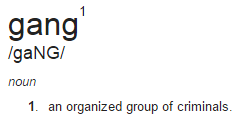
With that said, it’s challenging coming face-to-face with the somewhat out of touch and insensitive way that GANG presents itself at times. The first issue is the name of the organization itself – the word ‘gang’ has such terribly negative connotations and it totally fails to represent the game audio community we all know and love. It’s hard to avoid sounding terrible out of context when calling yourself “a GANG member” or associating yourself “with a local GANG (chapter)” and the whole acronym resonates with a juvenile humor that simply isn’t funny. While GANG has achieved a great deal over the years by raising the awareness of game audio, it’s no longer served by this bastion of aggression. It’s not something that will put everyone off, but once the legacy of verbiage is acknowledged it feels completely out of place; once a negative association is made, it’s difficult to un-make it. Call it a times-they-are-a-changin’ moment of clarity or simply an indication that, while the game industry at large is facing perception and growing pains regarding inclusivity, GANG has some work to do in order to shed some old habits and connotations.
There’s a survey at the end of this article where you can share your opinion on the acronym GANG.
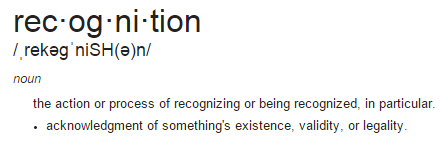
Which brings me to the GANG awards themselves. The awards ceremony aims to be a moment of pause during, what can be a frantic week of (over) socialization and a time to recognize the great work done across our community. I have felt this recognition ripple throughout the community outside of audio departments and influence positive change from outside the sound-proofed studio walls. When people (producers, engineers, artists and all the other disciplines that make up game development) hear of the recognition of technical and artistic excellence for games we’ve made, it gives greater pause to the consideration of audio as an integral part of the process. This recognition lends itself to this voice by shouting accomplishments outside of the audio department and putting a sharp focus on the audio in a game.
I was struck by the humbleness of most award recipients at the awards show; usually the first thing out once reaching the podium was a spoken appreciation for the work of everyone in the room and their teams. A sentiment that is deeply felt, for the attendance brings together some of the finest artists in game audio. This feedback-loop of positive recognition was heart-warming and made me feel like part of something much bigger than myself. The realization that I am part of this community, actively or passively and how I feel deeply invested in “the long game” of what game audio can be. Surrounded by peers and visionaries, the emotion in the room made me feel like I was a part of the legacy. Which is why I feel so strongly about some changes in the way the community is represented by our organizations and how it’s in everyone’s best interest to help bring about positive change.
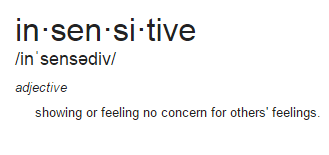
Despite the good vibes and respectful recognition, I was brought face-to-face with something which unfortunately tainted and contradicted the mood of celebration and brought the entire experience down. Used as interstitial “comic relief” were a couple of internet-culled videos poking fun at video games in general as a way to ostensibly “lighten the mood”. This point is a little unfair without context and was a little difficult for me to understand in the moment. I don’t watch much TV and my view of popular culture phenomenon such as Celebrity Roasts [picking apart people for their flaws] and Wipeout/ Break.com [laughing at someone’s misfortune or poking fun from afar] are as an oddity not an embrace. The discomfort I was feeling was validated when I received a text from a friend who was voicing the same feelings during the awards. One such video was senselessly bashing Destiny for its perceived failings (amidst a room full of people who worked on the game) and another berating an animated Pac Man for being “too fat”. Comments to the extent of “these are NOT my people, this is NOT my scene, I want NO PART of this weird self-important nonsense!” echoing the hallways. These feelings were not exclusive to this year’s awards, but a common theme from the last few year’s awards shows. Afterwards in conversations it seemed like I just needed to open the door for commentary and I was met with the same feelings of inappropriateness and insensitivity.
It’s not that either of these videos are “bad” per-se (searching for them, I found many other variations on the same theme) but in context I feel like the choices didn’t represent the spirit of the event, they didn’t respect the people in the room, and unfortunately showed exactly the kind of behavior that we, as well adjusted adults and professionals in the game industry, should be distancing ourselves from whenever possible. In comparison to the questionable one-liners delivered by comedians at an event like the Oscars (which zing by in a couple of seconds) these video held a captive audience in their negative embrace well past the point of comfort or comedy. It’s one thing to cue up a video on your desktop and close the window when you’ve had enough, suffering through 30-60 seconds of title bashing during an uplifting awards ceremony honoring the work of people whose artistry is being recognized is another thing entirely: punishing.
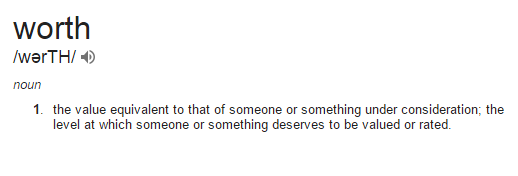
GANG has an image problem, and one that can’t be simply solved with a new website. From the juvenile and antiqued naming already discussed, to the lack of inspired discourse in their forum, GANG is ripe for re-branding, re-invigorating, and re-inventing. From the GANG Town hall this year, it was clear that the GANG forum participation is at a lifetime low. Of the 60-ish people in the room two hands went up when the question of “Who here visits the forum?” Additionally, there were several voices from the community who wished there was more involvement and another who shared a story of posting a question years ago with no response. From my perspective (and behavior) people today will stay mostly within their “social garden” as long as it will fulfill their social needs. That means that, if a person can get the kind of interaction they’re looking for on Facebook, Twitter, Reddit, DesigningSound, VGM or wherever they hang around online, they don’t need a paid forum. I don’t care if you are a student or a professional, $100 USD a year is a lot of money for access to the crumbling remains of a long dead and abandoned walled-garden. And new members keep coming, many students and new to the industry, hoping to find a secret in-road or sympathetic ear to assist them on their way. When the GANG forum fails, it does more than just fail its membership, it leaves a black-hole sucking the positive efforts of the organization with it.
In comparison, I can say beyond a shadow of a doubt that #GameAudio on twitter is an extremely supportive community of profession and hopefuls all soaking-in and contributing to the conversation. Twitter might not support the long-form conversation, but there are many publicly available places where people can engage in discussions. The conversation going over on reddit at /r/GameAudio allows for detailed discourse and bubbles up the most relevant discussions to its user-base and is open to everyone. At its best, I think the value of GANG is not in its forums but in the semblance it gives to game audio overall. Some of the negative perception facing GANG is the belief that the forums are still relevant in this day and age as a value proposition to their membership. This presentation of the GANG forums as valueble for members is misplaced and should be focused on the recognition, education, and outreach efforts of which the organization continues to champion.
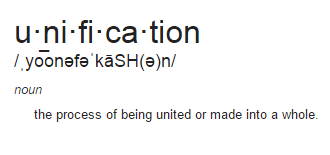
The other aspect brought into sharp focus over the past-years is (my perceived) redundancy between the work of the IASIG & the Interactive Entertainment Sound Developers (IESD), a professional branch of GANG “focused on discussing and addressing the needs, resources, standards, and continuing education”. While both organizations have found their own reasons for existing and continue to work towards a shared goal of standards & recommendations-based guidance for the game audio community, their individual output can often be found lacking. The momentum of each initiative or working group is directly related to the passion of the knowledge-leader, whatever the intended goal seems to be. Each organization provides a place for someone’s passion to find a forum with others who can help shape and polish an idea-at-hand into something that may become adopted as a suggestion or standard to the industry-at-large. As the passion of Garry Taylors work to define a Loudness standard at Sony neared completion, the IESD was brought in to help to carry forward a Mix Recommendation publicly and encourage its adoption across many larger studios. Similarly, the IASIG Educational Working Group produced a report of recommended guidelines for Game Audio Education Curriculum.
At best these working groups become a catalyst for discussion surrounding a relevant topic within the community and result in the public sharing of a best-practices. At worst they become an ever-quieter blip on the email-reflector radar growing dimmer with each passing year. Regardless of output, the redundancy makes me feel like there is room for the cross-pollination of passionate collaborators which could result in the perception that there’s more going on. From the outside-in it’s difficult to see the movement of either organization (even from within) as it often develops wholly behind-the-scenes at a glacial pace. It seems as if each group has a cadre of motivational folks who help to spin the wheel of progress and I wonder if by combining efforts they might not be able to accomplish more together.
From conversations I’ve had (and a healthy dose of my feelings) I think there’s a lot of confusion around why there are two separate entities in game audio and what benefits one might have over the other. While each of their roles seems somewhat defined, after swimming in these waters for many years, the water surrounding things like: redundancy, value, forums, and output make for a misunderstanding as to where someone should align and focus their energy as part of a community (not only energy, but also the misconception of “allegiance”).
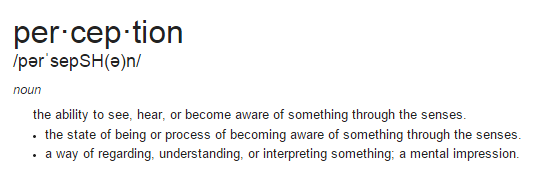
It’s with these fuzzy-feelings and a full-head of conversations surrounding the current state of things coming out of GDC this year that I’ve endeavored to get everything into this document. I’ve had so many soft ears to bend and smart people filling me up with observations and opinions that I can’t really take credit for all of the words or emotions. There has been incredible progress on the part of both GANG and IASIG over the past years thanks partially to the refreshing of leadership and the continued effort of passionate individuals. However, I can say that there seems to be a resounding feeling that things could be better…and that is a big reason as to why this is surfacing.
Here is a summary of the points I’m trying to make:
Rebrand the Game Audio Network Guild (GANG).
Rename the organization.
Increase sensitivity during the awards ceremony.
Re-Focus Membership towards: awards, education, outreach.
Deprecate the private/ proprietary forums.
Absorb/ Adopt the IASIG as the Professional Branch of the organization.
Amidst feedback from some that the sense of game audio community is stronger now than it ever has been, I think the time is right to capitalize on this goodwill. As someone who wants to extend that good feeling into all of the dark corners of game audio I hope we can all find a way to work together to bring forward positive change in a respectful way. My hope is that this article is received with the best intentions and serves as a catalyst for change or at the very least catharsis.
I think it would be valuable for people to share their opinions on the state of these organizations and I look forward to getting a better understanding of people’s perspective on these issues. Maybe there’s something missing from this article that feels relevant and appropriate to open up for discussion. If you do choose to comment on this topic, please try to find a way to present your feelings respectfully.
In the spirit of that, please share your perspective on some of the issues raised in this article through the Survey or in the comments.
You May Also Like